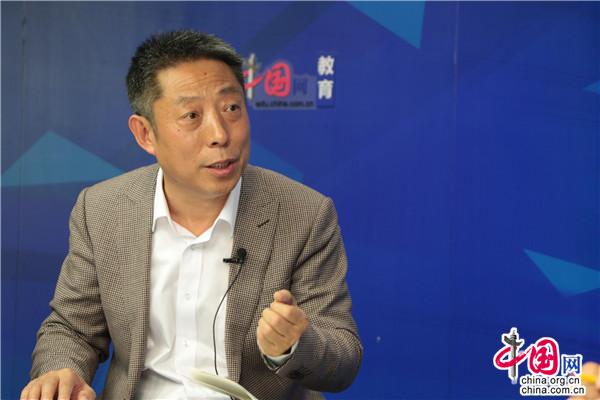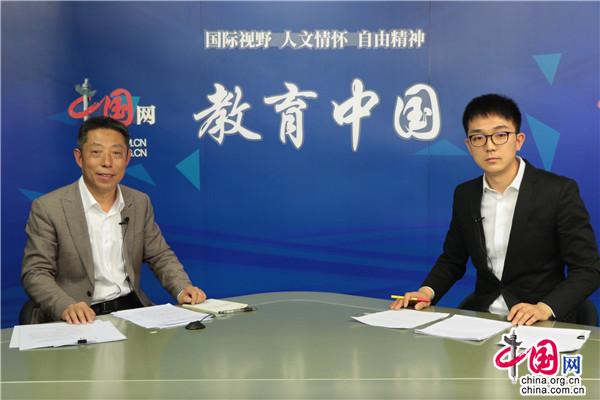 One of the goals put forward in the 13th Five-Year Plan for National Education Development is to “further expand opportunities for lifelong learning for all and form a modern education system suitable for everyone.” As an important element of this goal, the Open University of China (OUC) has been exploring non-degree education. Recently, Liu Chen, vice president of the OUC, visited the China.org.cn to discuss this topic.
One of the goals put forward in the 13th Five-Year Plan for National Education Development is to “further expand opportunities for lifelong learning for all and form a modern education system suitable for everyone.” As an important element of this goal, the Open University of China (OUC) has been exploring non-degree education. Recently, Liu Chen, vice president of the OUC, visited the China.org.cn to discuss this topic.
Mr. Liu said that the OUC’s mission has always been to fulfil the goals stated in the plan, and that therefore it has always attached great importance to the development of non-degree education.


OUC vice president Liu Chen visits China.org.cn
The reporter learned that the OUC emerged from the China Central Radio and Television University in 2012, and launched a pilot programme to construct an organisational system that would incorporate 44 Radio and Television Universities (RTVUs). At present, 39 provincial-level RTVUs and 5 local open universities have joined the OUC community. Over time the OUC’s system, characterised by intensive community education, integration of multiple subjects, openness and inclusiveness, as well as mutual assistance among the various branches, came to reach its present state. All OUC units have taken part in the non-degree-education pilot project.
Liu Chen said that over the school’s nearly 40 years of development, the OUC has accumulated a strong grasp of operations in terms of its IT platform, curriculum resources, teaching teams and teaching methods. What’s more, degree students often become important source of non-degree students. The OUC is making use of everything that it has learned about degree education, strengthening its sharing of information in terms of building the system and the IT platform, and developing its digital-learning resources, student management, administration, credit accreditation, and so on.
Liu Chen said that many training companies provide non-degree education, but that the support available from the OUC community and the OUC’s curriculum resources make it an excellent alternative.
Liu Chen stated that the OUC offers integrated solutions for on-the-job training to government ministries and a variety of enterprises. and has made great efforts to develop non-degree education. The OUC non-degree education programmes follow the principle of shared responsibility as well as shared risks and benefits among the various members of the OUC community. These members - the OUC branches, schools, and study centres - can decide independently what types of non-degree education programmes to take up based on their own situations, and collaboratively develop programmes related to them.
Liu Chen said that, for branches, schools and study centres undertaking non-degree education, OUC headquarters will offer a standardized system, including a platform, curriculum, resources, teaching services, training, and operations management to support it. At the same time, the headquarters encourages and supports collaborations with local industry and other businesses being upgraded into OUC non-degree educational projects, the benefits of which are to be shared and enrollment for which shall be open nationwide.
Liu Chen stated that the OUC has built a learning outcome accreditation system with more than 70 branches in 31 provinces and municipalities, covering more than 20 industries, and including more than 4.53 million lifelong credit accounts for all kinds of personnel. It has also set up an alliance for mutual recognition of learning outcomes; more than 30 institutions, including businesses and post-secondary institutions, have joined the alliance, and more than 250 learning outcomes have been accredited.
Liu Chen said that the connections between non-degree and degree education at the OUC, the establishment of lifelong-learning outcome files for students, and the accumulation and transfer of credits in accordance with a unified framework, have greatly improved learning efficiency and effectiveness, stimulated enthusiasm for lifelong learning, and provided a basis for the construction of a lifelong-learning service system.
By Yan Jingzhen, China.org.cn